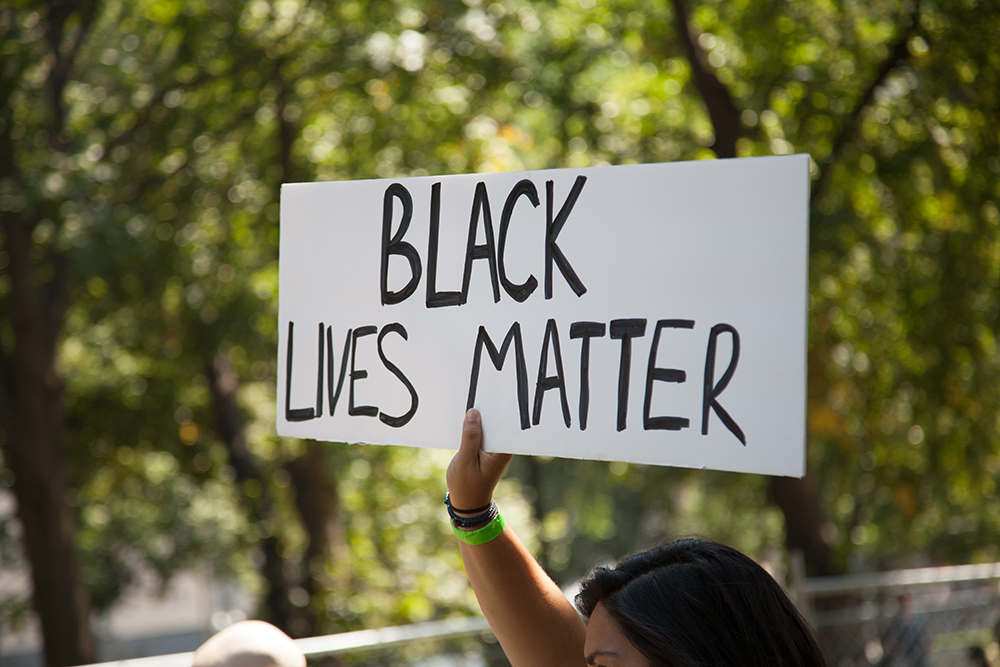

Columns/Blogs
Features
Corporate Social Responsibility
Diversity & Inclusion
It’s time for employers to address societal racism
By Michael Bach
 Employers have the ability to affect significant societal change, arguably far more than governments and individuals, writes Michael Bach. (JP Photography/Adobe Stock)
Employers have the ability to affect significant societal change, arguably far more than governments and individuals, writes Michael Bach. (JP Photography/Adobe Stock) On May 25, a 46-year old African-American man named George Floyd was murdered by police in downtown Minneapolis, Minn.
While handcuffed and lying face down on the street, a white police officer placed his knee on Floyd’s neck for eight minutes and 46 seconds, to the point that he couldn’t breathe and eventually died.
According to the criminal complaint filed against the officer, Floyd had been unconscious for two minutes, 53 seconds before the officer removed his knee.
I won’t say the officer’s name. He doesn’t deserve the ink.
Floyd was accused of having used a counterfeit US$20 bill to buy cigarettes at a deli. For that, he lost his life.
The resulting action that has occurred has been massive and sustained protests in dozens of cities across the United States, Canada — including Toronto and Montreal — and around the world.
Floyd’s death was the spark that has lit a fire built from hundreds of years of oppression of people from black Afro-Caribbean descent. It will not soon be extinguished.
Racist mindsets continue
Racism exists. That is undeniable.
It is defined by Oxford Languages as “prejudice, discrimination, or antagonism directed against someone of a different race, based on the belief that one’s own race is superior.”
While Floyd’s death is yet another example of the extreme racism faced by marginalized people in the U.S., Canada is not immune to such horrors.
A November 2018 report from the Ontario Human Rights Commission found that a black person in Toronto was nearly 20 times more likely to be involved in a fatal shooting compared to a white person, while only making up 8.8 per cent of the city’s population.
Vancouver Police recently revealed that the number of reported hate crimes against East Asian people doubled between March and April 2020, and has already exceeded the total number of complaints received in all of 2019.
We Canadians are just as guilty of racist behaviour as anyone else.
Affecting change
How do we eliminate societal racism? How can we tackle this insidious plague that continues to erode the fabric of our desired inclusive society?
To paraphrase Robert Frost’s poem A Servant to Servants, the only way out of this mess is through it.
Employers have the ability to affect significant societal change, arguably far more than governments and individuals.
Take TD Bank as an example — in their 2019 fiscal year, they employed 89,031 people. By sheer number, that would make them the 36th largest city in Canada based on the 2016 census — on par with Sudbury, Ont., at just over 88,000.
TD, as an employer, has the ability to influence the belief system of nearly 90,000 people. That’s power!
Employers yield that power daily. They dictate a multitude of things for their people. They train their employees on everything from things as simple as proper phone etiquette to complex topics like leadership style.
6 steps for employers
Employers have a captive audience. And now is the time to wield that power — for the greater good — to eliminate racism.
What that looks like is a series of actions:
- Review policies and procedures to ensure they are inclusive and don’t inadvertently exclude anyone. It is imperative to have things documented so there is no confusion or room for misinterpretation.
- Enforce those policies and procedures with a zero-tolerance practice that you actually impose. Any act of racism (or discrimination of any kind) is to be met with a pink slip. No debate!
- Leverage available resources like CCDI’s Navigating race in Canadian workplaces. Employers don’t need to do this work in isolation. There are already resources available to help.
- Educate, educate, educate. You cannot overestimate the value of education. Educate your people on things like race and racism and their role in creating an inclusive workplace.
- Know when to fire the customer. Sometimes customers, clients or guests don’t share the same values as you. Sometimes you need to thank them for their support, but suggest they find another place to do business.
- Take a stand against racism. That means publicly stating that discrimination in any form will not be tolerated by your organization. You may offend someone. In fact, if you don’t offend someone, you’re not doing it right. If you believe that we should be working toward the elimination of racism as a society, then you should be willing to take the risk and get involved.
Now is the time for employers to leverage their power by working to educate their people on the importance of inclusion in our society.
The resulting action can change the world.
Consider this: The average household size in Canada is 2.5.
If an employer can help one person to understand their role in creating an inclusive society, that person can carry that message forward. TD’s 90,000 becomes 225,000. It can become the butterfly effect that can change the world.
We have had enough of kind words and platitudes. Now is the time for change!
#BlackLivesMatter #EndRacismNow
Michael Bach is the CEO of the Canadian Centre for Diversity and Inclusion in Toronto, and author of the book Birds of All Feathers: Doing Diversity and Inclusion Right.
Print this page